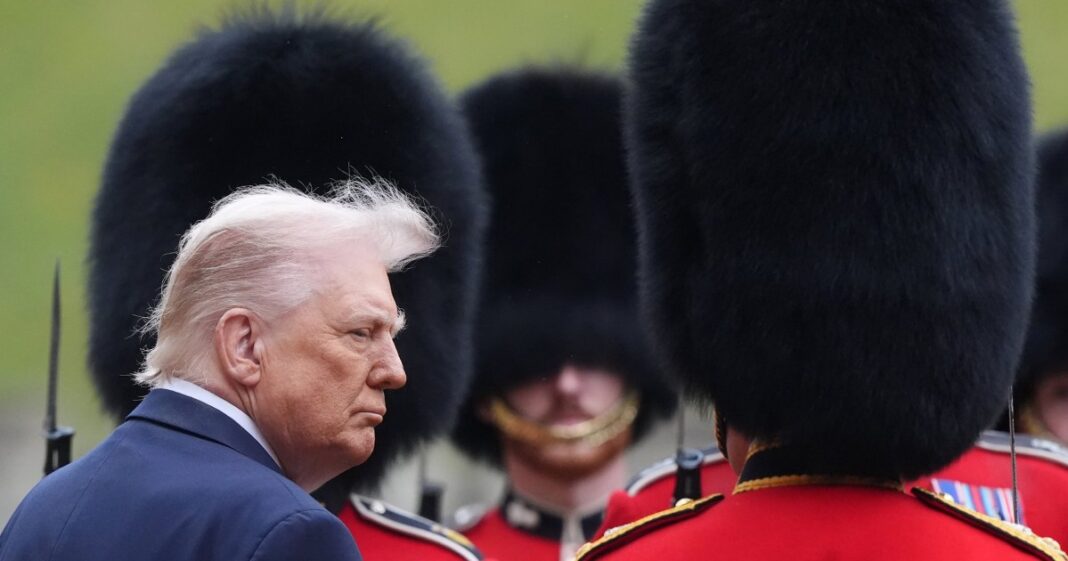Diverging Perspectives on Palestinian State Recognition: Starmer vs. Trump
In a recent discussion surrounding the United Kingdom’s anticipated recognition of a Palestinian state, two prominent political figures, US former President Donald Trump and UK Labour leader Keir Starmer, provided contrasting viewpoints. Their debates reflect the complexities of Middle Eastern politics, particularly concerning the ongoing crisis in Gaza.
Starmer’s Call for Humanity and Peace
Keir Starmer addressed the dire situation in Gaza, describing it as “intolerable.” He highlighted the urgent need for action by underscoring the plight of the hostages held in Gaza. “They’ve been held for a long time and must be freed,” he emphasized, indicating a deep sense of empathy and a call for immediate humanitarian intervention.
Starmer stressed that accelerating aid to Gaza is paramount and must be prioritized. “We need aid to get into Gaza at speed,” he said. This humanitarian approach is seen as part of a broader peace strategy. He envisions recognition of a Palestinian state as a crucial component of a comprehensive plan aimed at achieving a “safe and secure Israel.” This dual focus on Israel’s security and Palestinian statehood aims to transition from the current crisis to a sustainable peace.
Starmer’s vision reflects a thoughtful combination of empathy for those suffering in Gaza with a pragmatic understanding of political realities. He is advocating for an approach that fosters hope for both Palestinians and Israelis, viewing recognition as a necessary step in moving toward stability.
Trump’s Staunch Opposition to Recognition
In stark contrast, Donald Trump expressed strong opposition to the idea of recognizing a Palestinian state at this juncture. He concentrated on the urgency of the hostage situation, advocating vehemently for their unconditional release. “We need all hostages freed immediately, not just a few at a time,” Trump stated, exhibiting his strong stance on ensuring the safety of those affected.
Trump recounted the harrowing experiences shared with him by hostages who had come to the Oval Office. “There was no humanity, no anything,” he recounted, emphasizing the brutal conditions faced by those imprisoned. His remarks illustrate his deep concern for the human cost of the conflict, portraying a misunderstanding of how hostages were treated during their captivity.
As he remarked on the catastrophic events of October 7, 2023, Trump insisted that the memories of those events must inform current decisions. His primary contention was that discussions of Palestinian statehood should take a backseat to immediate humanitarian needs. “I have a disagreement with the prime minister on that score, one of our few disagreements, actually,” he clarified, indicating a significant divergence in their approaches to solving the crisis.
Competing Narratives in a Complex Conflict
The contrasting views of Starmer and Trump reflect a broader debate on effective pathways to peace in one of the world’s most protracted conflicts. Starmer’s humanistic approach embraces diplomatic solutions, suggesting that state recognition could pave the way for peace. In contrast, Trump prioritizes immediate security concerns, advocating for a hardline stance against recognition until critical issues, such as hostage release and security assurances, are resolved.
Both leaders underscore the urgency of the situation in Gaza, but they diverge sharply on the methods of achieving progress toward peace and security. This division illustrates the complexities of international relations and the difficulties in forging a consensus on how best to support both the Israeli and Palestinian people in their pursuit of safety and dignity.



